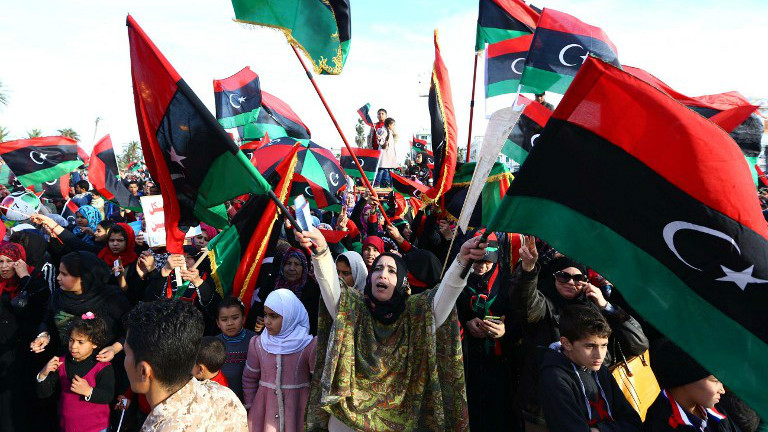Libya’s crisis worsening – The obsession of power, conflicts of interest, and divisions

On 10 February, the Libyan House of Representatives in Tobruk, in the far east of the country, unanimously selected Fathi Bashagha as the new Prime Minister to replace Abdel Hamid Dbeibeh in a highly controversial vote that will fuel a power struggle in a country that has been battered by conflicts for more than a decade.
Bashagha failed to end the mess
Bashagha has been interior minister in the GNA, led by Fayez al-Sarraj, since 2018, and promised to eliminate corruption but failed to end the chaos that Libya has experienced since the unrest that erupted in 2011 when a NATO-backed military campaign toppled former president Muammar Gaddafi.
Muslim Brotherhood divisions
The Brotherhood’s choice of Bashagha to form a new government was rejected by his predecessor, Abdul Hamid Dbeibeh. The Brotherhood also held on to his chair, refrained from leaving it, and led to a split in the High Council of State. Fifty-four members announced earlier this month that they rejected the steps approved by the Libyan parliament to amend the constitution to elect a new prime minister and affirmed the invalidity of the confidence-building measures in the Dbeibeh government.
Experts say the Islamism group’s influence within the council, headed by Brotherhood terrorist Khalid al-Mishri, has hampered the council’s recent understanding with parliament, which was endorsed by 75 members of the State Council.
The State Council was formed under the Skhirat Agreement of 2015, and includes members who were in the former GNC, which was under the control of the Brotherhood. The agreement stipulated that its role would be to provide “advice” to Parliament on laws, without the need for prior approval, but considered that its approval of laws under the name “consensus” was a condition for their passage.
The Libyan crisis becomes more acute as the security chaos, political disputes and the absence of a national unity government continue. Fears are growing that the current division of the country will become a fait accompli imposed by the forces controlling the land and their foreign supporters, foremost among them Turkey, with the continued intransigence of Dbeibeh, whose government was responsible for leading Libya to elections on December 24, but was canceled amid sharp divisions over its legal foundations and the candidacy of several controversial figures.
Conflict of opinion and interest
According to Libyan political analyst Abdel Majid al-Hadar, the picture of the situation in Tripoli is vague. On the one hand, the new Prime Minister-designate Fathi Bashagha assures us that things will go well, without resorting to arms, and on the other hand, we believe that the current Prime Minister, Abdul Hamid Dbeibeh, and some members of the State Council are going against what Bashagha and the other members of the State Council see as favoring the reconciliation with the parliament.
Al-Hadar said the issue of the State Council’s agreement with parliament is an obstacle for Bashagha. The emergence of armed militants loyal to the political Islamist movement and with leaders in the council confirms that the issue of extradition may be hindered by armed skirmishes, which is unlikely to be long-term; Bashagha’s strength is the most well-armed, numerous, trained, and capable.
The Reality of the Libyan Crisis
Political realism may make it imperative that we recognize that there is a real crisis in Libya other than that declared and attributed to external intervention, proxy war, and international bickering over the Libyan pie (oil, gas, and minerals), even though external intervention and proxy war are essential parts of the crisis.
The Libyan crisis is at the root of a conflict between those who believe in the civil nation-state within the geography of Libya, those who believe in a state that transcends the borders of Libya and makes it a state in a caliphate behind al-Baghdadi, bin Laden, or even the guide, and those who believe in the civil state, between those who consider Libya to be a state originally composed of three provinces and whose federal system must be restored, those who want to arrogate to themselves the central power and maintain the authority of Tripoli over the other territories without meeting the minimum requirements of the others, those who want to build the foundations of a Libyan state solid (and almost non-existent) and those who seek to remain in office at any cost to serve their own interests and those who support them from within or without.












